The Giant Trance has a long history, being launched way back in 2005 – In fact this year’s models represent the 9th generation of this bike.

The Trance has always been a bike suited to the general purpose rider and even though this year it gets longer and slacker, it’s still aimed squarely at the one bike to rule them all market.
In fact at the less than glamorous Zoom presentation a couple of weeks ago with the guys at Giant behind the Trance X evolution (A disturbing presentation not least as we all got to see Mike Levy’s bedroom) it was pointed out to us several times that this is a 50/50 bike. 50% climber, 50% descender.
The more ordinary Trance X(sans “Advanced”) was launched last month and the fundamental difference the “Advanced” makes is the frame material and the high end spec list that includes Fox Live Valve at the top of the line.
Latest Singletrack Merch
Buying and wearing our sustainable merch is another great way to support Singletrack
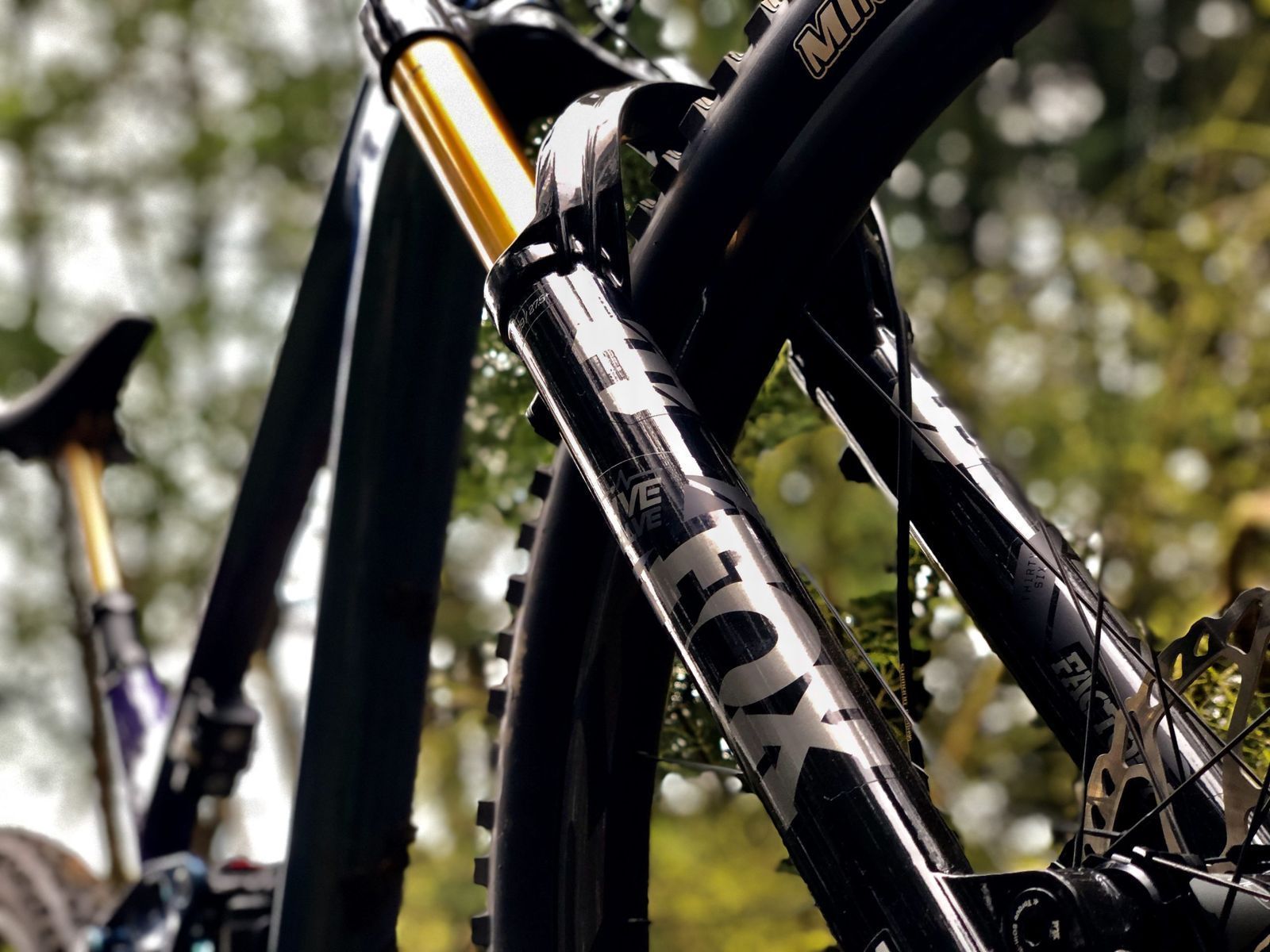
As announced last month, the new X features extra travel and flip chip that allows you to drop the BB 10mm and slacken the head angle by 0.7 of a degree. Flip Chip systems are not new but it’s a strategy being adopted much more widely of late (see Specialized Status for example), probably because it’s such a simple and relatively easy to add enhancement to a model. And it undoubtedly allows the marketing team to widen the scope of their campaigns to a broader audience.
Another feature of this bike that has followed the trend of getting longer is the name. Giant Trance X Advanced Pro 29. When you add on the model designation then we definitely have a potential winner in the longest bike name category. Rolls off the tongue doesn’t it?
Trance X Features
So let’s have a run through some of the main features that make this Trance X different to previous.
As mentioned the main difference is the travel. While Ordinary Trance (sans X) sports a modest 130mm & 115mm travel front and rear respectively the X gets 150mm & 135mm of travel front & rear. Depending on where you come in on the range suspension choice ranges from Rockshox 35 Gold RL forks with Fox Float DPS shock on the Trance X 29 3 to the all bling Fox 36 Factory Live Valve fork & Float DPX Live Valve shock on the Advanced Pro 0 model (See spec list below for full range).
The ‘Advanced’ moniker designates the frame material as composite carbon fibre, which includes everything, including the rear swing arm. The non- ‘Advanced’ X is made from aluminium. So the four bikes in the range go like this, with the 0 & 1 models launching today.
- Giant Trance X Advanced Pro 29 0 – £7999
- Giant Trance X Advanced Pro 29 1 – £4999
- Giant Trance X 29 2 – £2999
- Giant Trance X 29 3 – £2499
That’s quite a range in pricing for just the four models and there’s a £3k gap separating the two Advanced Pro models.
The difference in frame weights is significant between carbon and aluminium models. The Carbon frame on the 0 & 1 Advanced weighs in at a whisker over 2kg which is a good 600g lighter than the aluminium version. That’s a pound and a half saving in old money. The top of the line 0 model in medium weighs in at 29.5lbs without pedals
So if the ‘Advanced’ means carbon what is the difference between the 0 & 1 models?
I’m glad I asked that. The main difference comes down to the ultra tech Fox Live Valve system that comes with the top of the line 0 model. In fact that’s the model we have right here and have been riding. As well as Fox Live valve (more on that later) it comes with a spread of high end components from Shimano XT up to a worryingly expensive XTR rear mech. The 1 model comes without the Live Valve wizardry and the groupset is all SRAM GX flavour. For opting for this SRAM version you save a significant sum. £3k to be precise.

The Fox Transfer seatpost on the 0 model is swapped out for a less expensive Giant’s own version on the 1 and there’s a slight downgrade on the wheels from Giant’s TRX1 to TRX2.
The tyres supplied on both are the excellent Maxxis Minion DHF in size 2.4 but the frame will happily accept tyres up to size 2.5. And of course, at this level the bike comes tubeless and not just tubeless ready.
Maestro Suspension
The Maestro system is not new, which means it’s pretty well tried and tested. It’s essentially a single floating pivot system connected by four pivot points and two linkages. The design allows for consistent braking under high impacts as well as an almost vertical rear axle path which helps with sensitivity over the full range of bumps from small to big. It’s a bit complicated for sure, but I do like it.
What is Live Valve?
Chipps went into a lot of detail about Fox’s electronic suspension control system when it first launched two years ago and Wil rode one of the first bikes that featured it shortly after. There’s mixed feelings in the office about its value for sure with one word summaries ranging from ‘pointless’ to ‘clever’.
It is basically an automatic lockout systems for both shock and fork. There are sensors at both the front and rear of the bike that detect if you are going up, down or even if you are in free fall from a jump. The system takes these measurements every 3ms and a controller then either locks out the fork, shock or both momentarily or for much longer periods. It takes away the need to reach down and turn the levers and happens so fast that Fox claims it turns your ride into the most efficient it can be. When you don’t need it, suspension is locked but it instantly opens up when you do.
Full members can check out Chipps detailed explanation and review below.
Trance X Advanced details
| Model Name | Trance X Advanced Pro 29 0 | Trance X Advanced Pro 29 1 |
| Colors | Chrysocolla/Astral Aura/Chrome | Carbon Smoke/Metallic Black/Chrome |
| Sizes | M, L, XL | S, M, L, XL |
| Frame | Advanced-Grade Composite front and rear triangles, 135mm Maestro suspension, flip chip | Advanced-Grade Composite front and rear triangles, 135mm Maestro suspension, flip chip |
| Fork | Fox 36 Factory Live Valve, FIT4, 44mm offset, 150mm, 15×110 Kabolt, custom tuned for Giant | Fox 36 Performance Elite, GRIP2, 44mm offset, 150mm, 15×110 Kabolt, custom tuned for Giant |
| Shock | Fox Float DPX2 Factory Live Valve, 185/55, custom tuned for Giant | Fox Float DPX2 Performance, 185/55, custom tuned for Giant |
| Handlebar | Giant Contact SLR TR35, 780x35mm, 20mm rise | Giant Contact SLR TR35, 780x35mm, 20mm rise |
| Stem | Giant Contact SL 35 | Giant Contact SL 35 |
| Seatpost | Fox Transfer Factory dropper with Shimano remote, 30.9 | Giant Contact Switch dropper with remote, 30.9 |
| Saddle | Giant Romero SL | Giant Romero SL |
| Pedals | N/A | N/A |
| Shifters | Shimano Deore XT | SRAM GX Eagle |
| Front Derailleur | N/A | N/A |
| Rear Derailleur | Shimano Deore XTR | SRAM GX Eagle |
| Brakes | Shimano Deore XT | SRAM G2 R |
| Brake Levers | Shimano Deore XT | SRAM G2 R |
| Cassette | Shimano Deore XT, 10×51 | SRAM XG-1275, 10×52 |
| Chain | Shimano | SRAM NX Eagle |
| Crankset | Shimano Deore XT, 30t with MRP AMG V2 Carbon guide | TruVativ Descendent 6k Eagle, 30t |
| Bottom Bracket | Shimano, press fit | SRAM DUB, press fit |
| Rims | Giant TRX-1 29 WheelSystem | Giant TRX-2 29 WheelSystem |
| Hubs | Giant TRX-1 29 WheelSystem | Giant TRX-2 29 WheelSystem |
| Spokes | Giant TRX-1 29 WheelSystem | Giant TRX-2 29 WheelSystem |
| Tires | [F] Maxxis Minion DHF 29×2.5, 3C, Max Terra, EXO, TR [R] Maxxis Dissector 29×2.4, 3C, Max Terra, EXO, TR, tubeless | [F] Maxxis Minion DHF 29×2.5, 3C, Max Terra, EXO, TR [R] Maxxis Dissector 29×2.4, 3C, Max Terra, EXO, TR, tubeless |
| Extras | Factory tubeless set up | Factory tubeless set up |
Geometry numbers

| S (Low) | S (High) | M (Low) | M (High) | L (Low) | L (Low) | XL-low | XL-high | ||
| Seattube length | 430 | 430 | 430 | 430 | 465 | 465 | 496 | 496 | |
| Seattube angle (degrees) | 77.20 | 77.93 | 77.20 | 77.93 | 77.20 | 77.93 | 77.20 | 77.93 | |
| Toptube length | 566 | 564 | 597 | 595 | 629 | 627 | 656 | 654 | |
| Headtube length | 95 | 95 | 100 | 100 | 110 | 110 | 120 | 120 | |
| Headtube angle (Degrees) | 65.50 | 66.23 | 65.50 | 66.23 | 65.50 | 66.20 | 65.50 | 66.23 | |
| Fork rake | 44 | 44 | 44 | 44 | 44 | 44 | 44 | 44 | |
| Trail | 125 | 120 | 125 | 120 | 125 | 120 | 125 | 120 | |
| Wheelbase | 1173 | 1171 | 1205 | 1203 | 1239 | 1238 | 1268 | 1266 | |
| Chainstay length | 438 | 435 | 438 | 435 | 438 | 435 | 438 | 435 | |
| Bottom bracket drop | 40 | 30 | 40 | 30 | 40 | 30 | 40 | 30 | |
| Stack | 617 | 611 | 621 | 615 | 631 | 624 | 640 | 634 | |
| Reach | 426 | 434 | 456 | 464 | 486 | 494 | 510 | 519 | |
| Standover height | 734 | 743 | 729 | 738 | 754 | 763 | 777 | 786 | |
| Handlebar width | 800 | 800 | 800 | 800 | 800 | 800 | 800 | 800 | |
| Stem length | 40 | 40 | 40 | 40 | 50 | 50 | 50 | 50 | |
| Crank length | 165.0 | 165.0 | 170.0 | 170.0 | 170.0 | 170.0 | 170 | 170 | |
| Wheel size | 29″ | 29″ | 29″ | 29″ | 29″ | 29″ | 29″ | 29″ |
You see from the data table above the effect of the flip chip on the overall geometry. It’s not an insignificant change in the way the bike performs. You get a good idea of how different things will be when you undo to two retaining bolts and see the bike drop into the low position. It does create a whole new character for the bike.
First Impressions
We’ve had the Trance X Advanced Pro 29 0 for a couple of weeks now and we are certainly going to give it a thorough testing but for our full members here’s my first impressions of this top of the line bike.
The Live Valve system has stirred up some mixed opinions in the office. My personal impressions of it are that it is impressively clever and the ride feel of the system feels like it’s doing much more than simply locking and unlocking the suspension. The whole system apparently adds less than 400g to the entire bike weight so it’s not exactly adding a weight penalty even if you ride with it turned off.
There are a lot of wires needed to get the system to work and you may be wondering why such an expensive gizmo needs wires at all in this age of wireless. Fox explain that physical connections are needed to deal with the really small reaction times of the system of 3ms from detecting a hit to the signal to lock out or open the fork or shock. That means a wire for each of the sensors front and rear, plus wires leading in to the shock and the fork and then there’s are wires connecting all that to the central controlling hub that sits under the top tube. But considering this spaghetti of connections Giant have managed to keep everything looking remarkably neat, primarily by hiding as much of the cabling inside the frame as possible.
The internal cables, not only for the Live Valve system but also the brakes and shifters, are shrouded in foam tubes to minimise any chances of cable rattle in the frame and I have to say I’ve not noticed any so far.
I was instantly impressed on my first ride out by how supported I felt on the flat. The rear was genuinely hard-tail solid on the tarmac. A few bounces and bunny hops reassured me that there was genuine suspension still there somewhere and when you do hit a lump there’s no discernible pre-hit knock like you get with the mechanical Specialized Brain system.
I was struck by the efficiency of the pedalling action from the get-go. With no torque being lost to the rear shock, acceleration felt hard-tail rapid. The bike is also extremely well put together and I don’t just mean the nuts and bolts parts but the fact that despite it being a composite frame, which do tend to be susceptible to noise and rattles, the immense amount of extra rubber protection on the chainstays and the downtube made everything very quiet.
On technical terrain I had a mixed start to the Live Valve. I found that in the first two sensitive settings the bike just felt too solid. Switching to the middle setting for a while faired no better and it was only when I set it in the final fifth and least sensitive/responsive position that it began to feel like a genuine long travel bike. I tested it again with the suspension sag both front and rear set deliberately soft just to amplify the effect of the lockout and I still preferred the ride in the fifth and least active lockout mode.
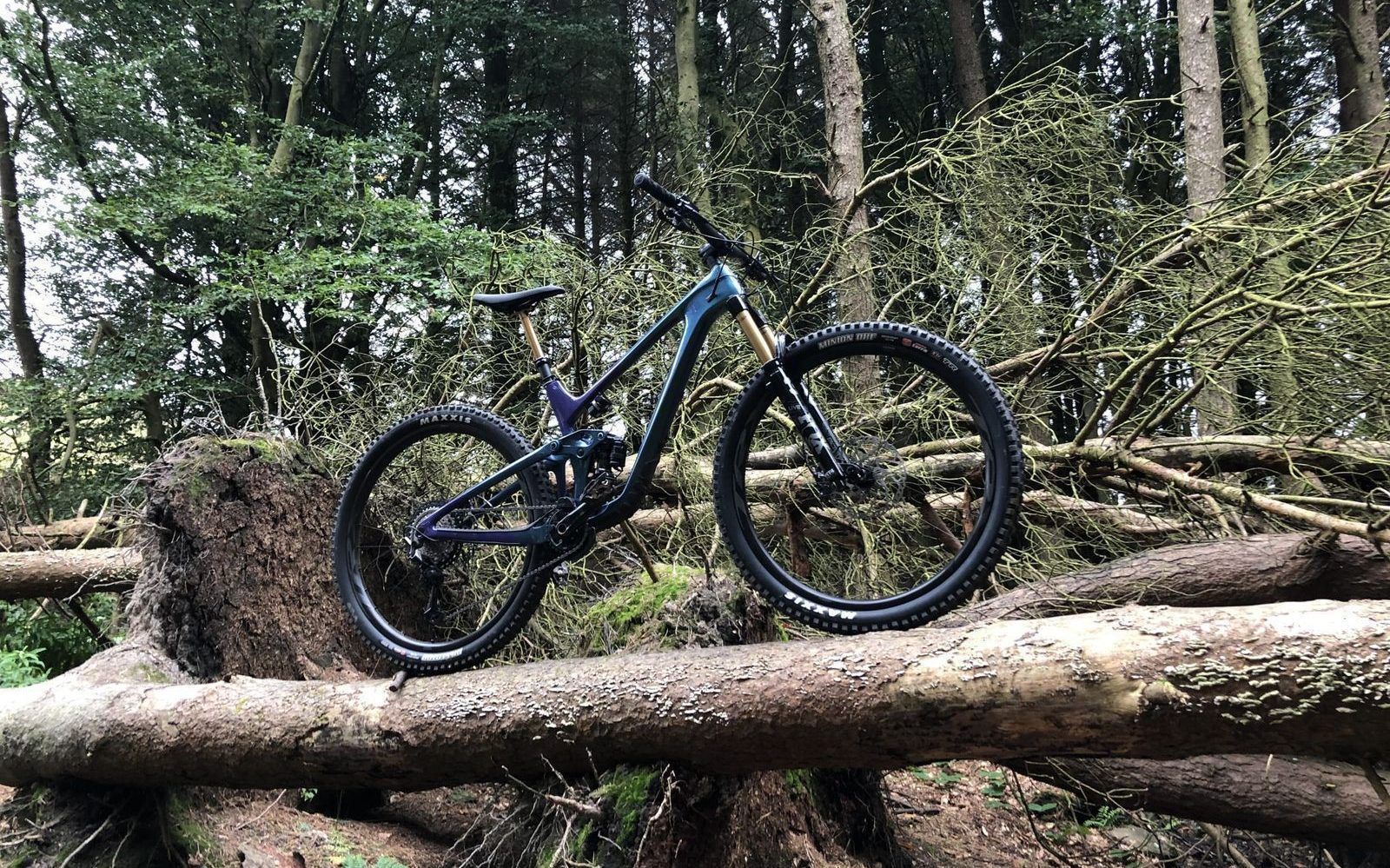
That said, when it got really steep and particularly lumpy both front and rear opened up fully and thankfully stayed that way. I can’t really imagine a scenario where I want any kind of lockout action on an off-road descent and I was happy I didn’t get any.
On the climbs though, I did finally find some love for the Live Valve, where its efficiency shone through. I have more experimenting to do though over the coming weeks. Less air and more tweaking of the rebound are on the cards.
But all this talk of Live Valve is perhaps doing this bike a disservice. It’s more than that. There’s a great climbing bike underneath all the electronics with some excellent geometry adjusting features. The transition from high to low position really does change the ride characteristics of this bike quite profoundly making it feel truly like two bikes in one.
Things I like
- The flip chip character change
- Fox Factory FIT4 Fork
- Climbing with the Live Valve is unbelievably good.
Things I don’t like
- Live Valve on undulating technical trails
- The bars didn’t have enough sweep for my comfort
- XTR rear mech is a bit OTT and mostly for show
Summary
Giant is traditionally conservative with their designs and are not really known for pushing the limits of what is acceptable or new. The Advanced Pro does follow the trends of progressive reach and steeper seat angles but they aren’t breaking any barriers. Giant is the largest bike company in the world and the market they encompass in their bell curve is massive. Pushing the boundaries of geometry is for other brands and Giant are happy and sensible (in my view) in their position of making bikes for the masses rather than the fringes. Most of us want safe (read conservative) and reliable, even if we think we don’t – especially if we are looking for just one bike to ride all the time. And that is precisely what the Trance X Advanced Pro 29 is meant to be. One bike to rule them all and for most of us in the centre of that bell curve that’s pretty much all we need. But this bike comes with the added bonus of that flip chip that can, for the sake of two minutes with a hex key, turn it into a different bike entirely. And for me that’s the best feature of this bike, not the Live Valve.
I’m yet to be convinced by the Live Valve system as a value adding upgrade and so, considering I like SRAM GX Eagle only fractionally less than I like Shimano XT, if I had a spare £8k I’d likely opt for the version 1 of this bike and spend my £3k change on a couple of holidays to Whistler. With the bike, obvs.
I’ll be back with a full review of this bike once I’ve put some more miles on it and fettled with that tech a lot more. Maybe I’ll find that sweet spot – That perfect combination of electronics and mechanics that will make me a Live Valve believer.
The Trance X 29 models will be available in October and the Advanced Pro 29 will be available in December. A full review of this bike will be published for members in October.






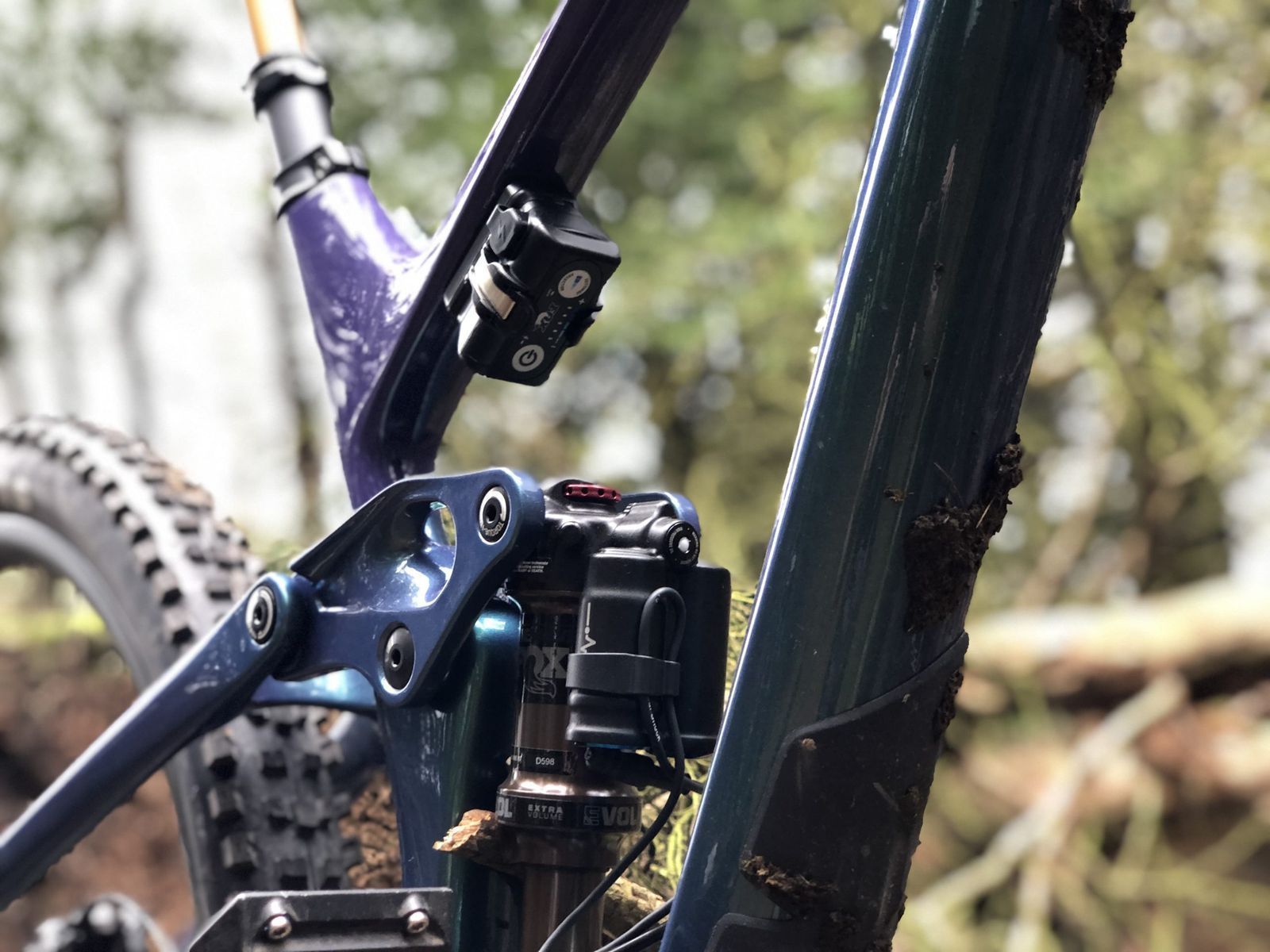
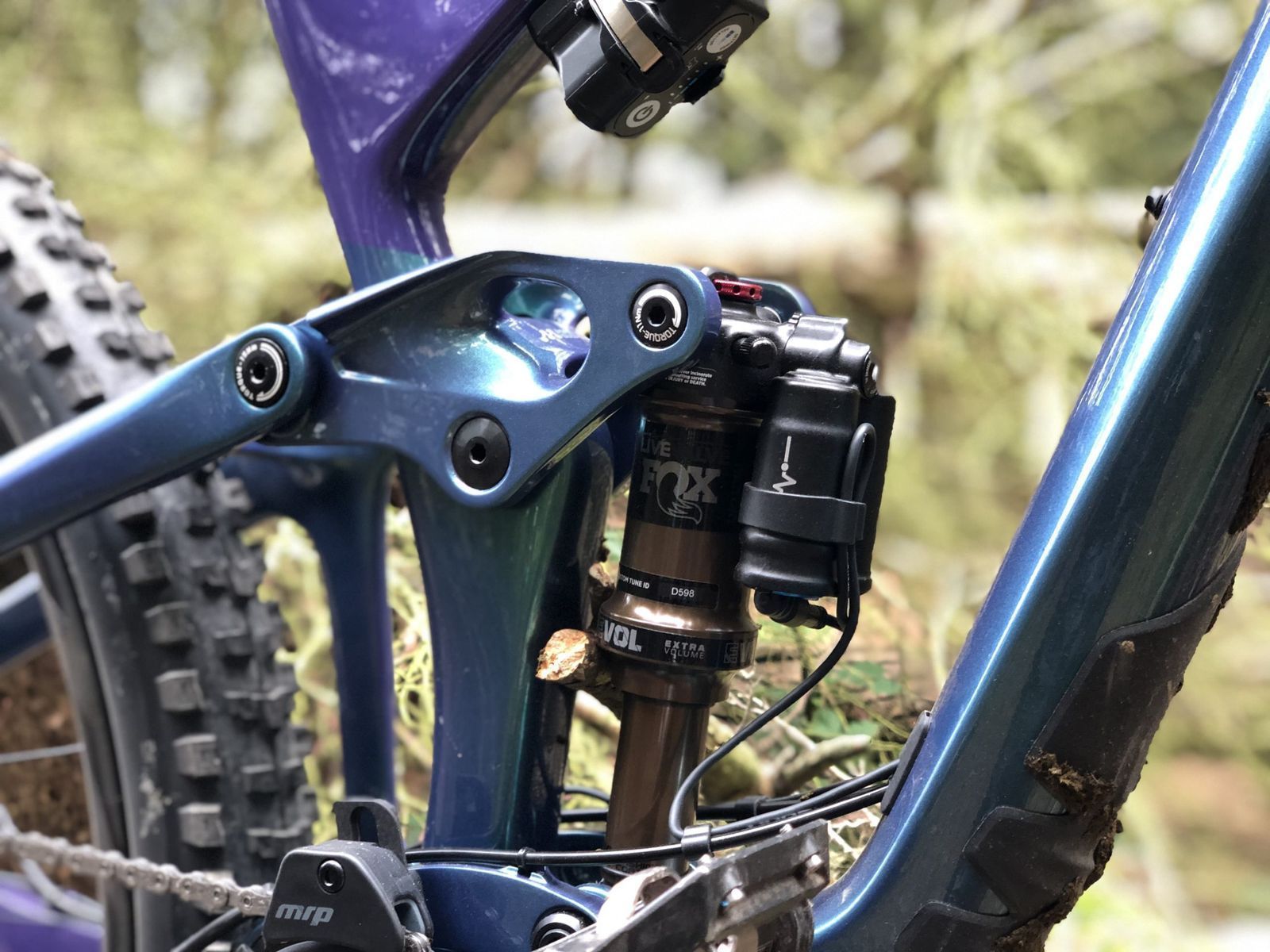

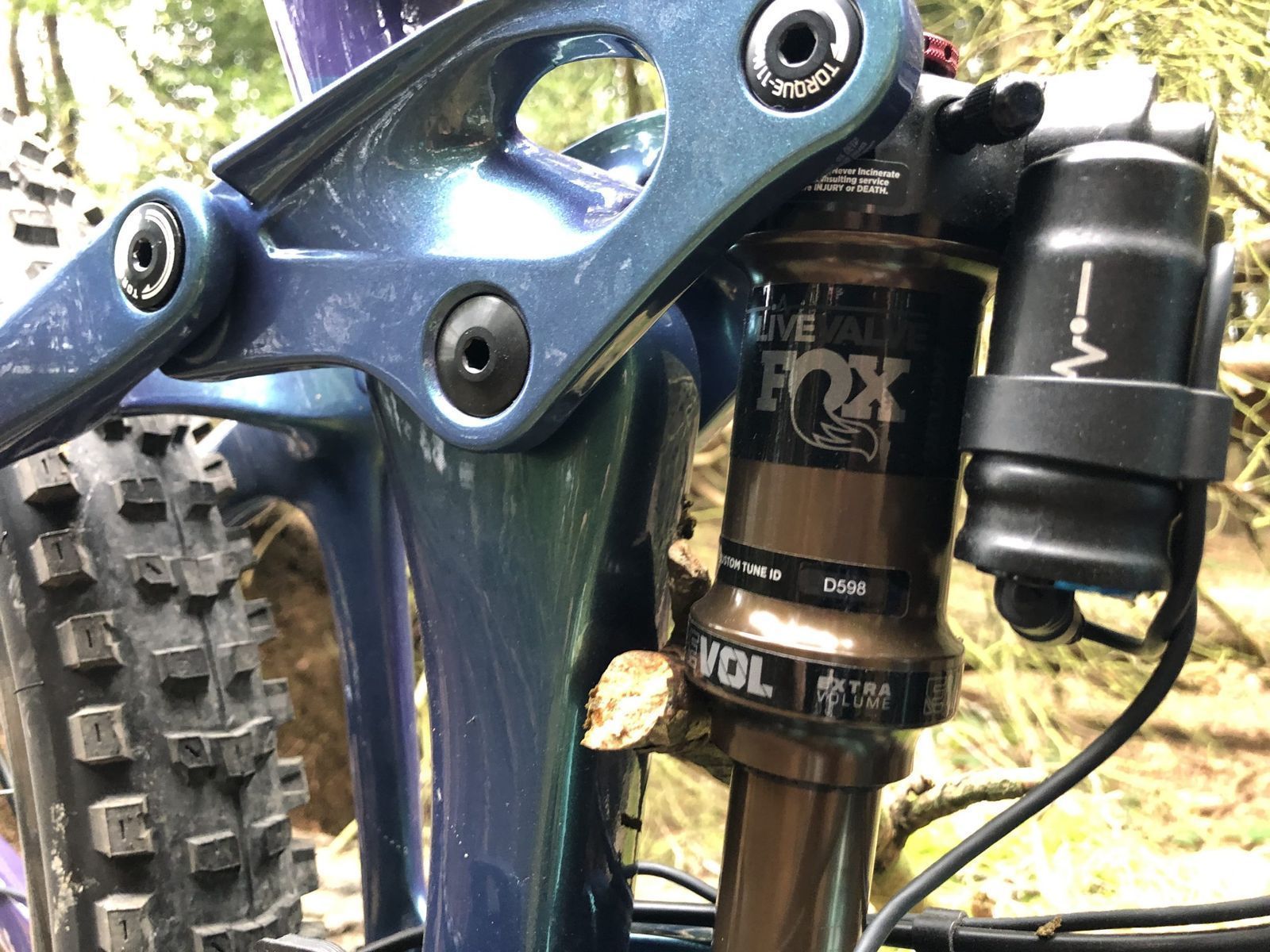




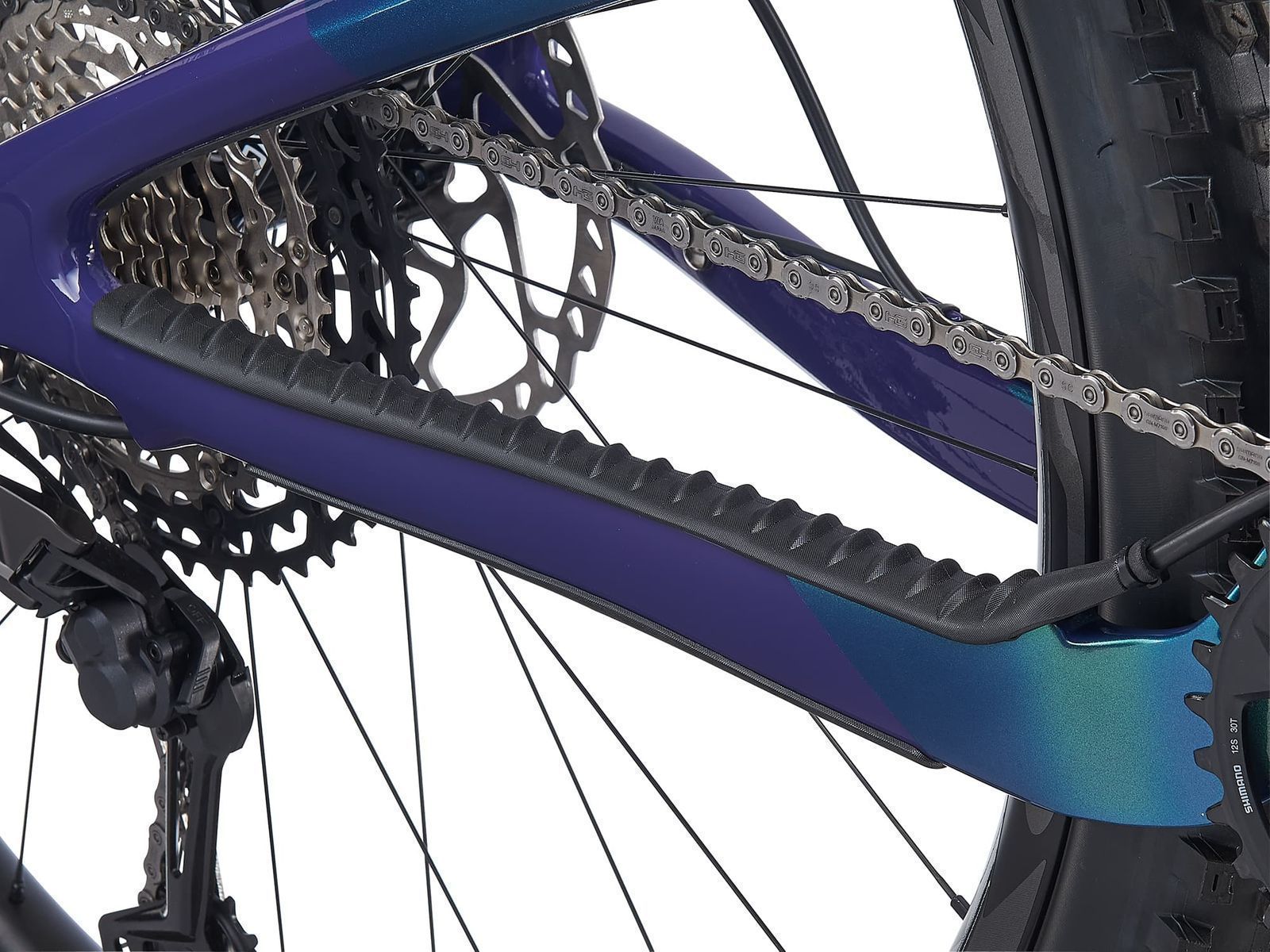
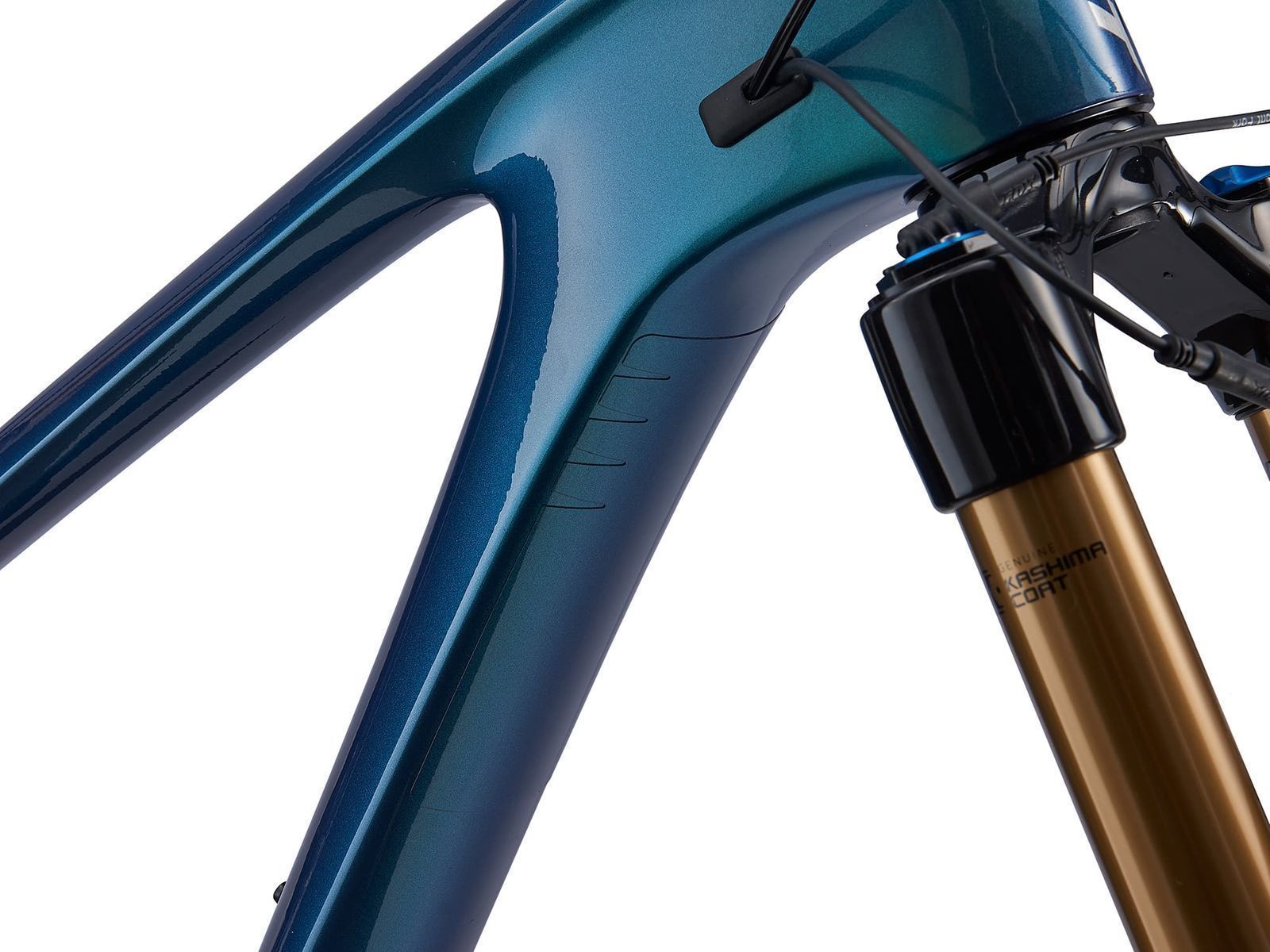
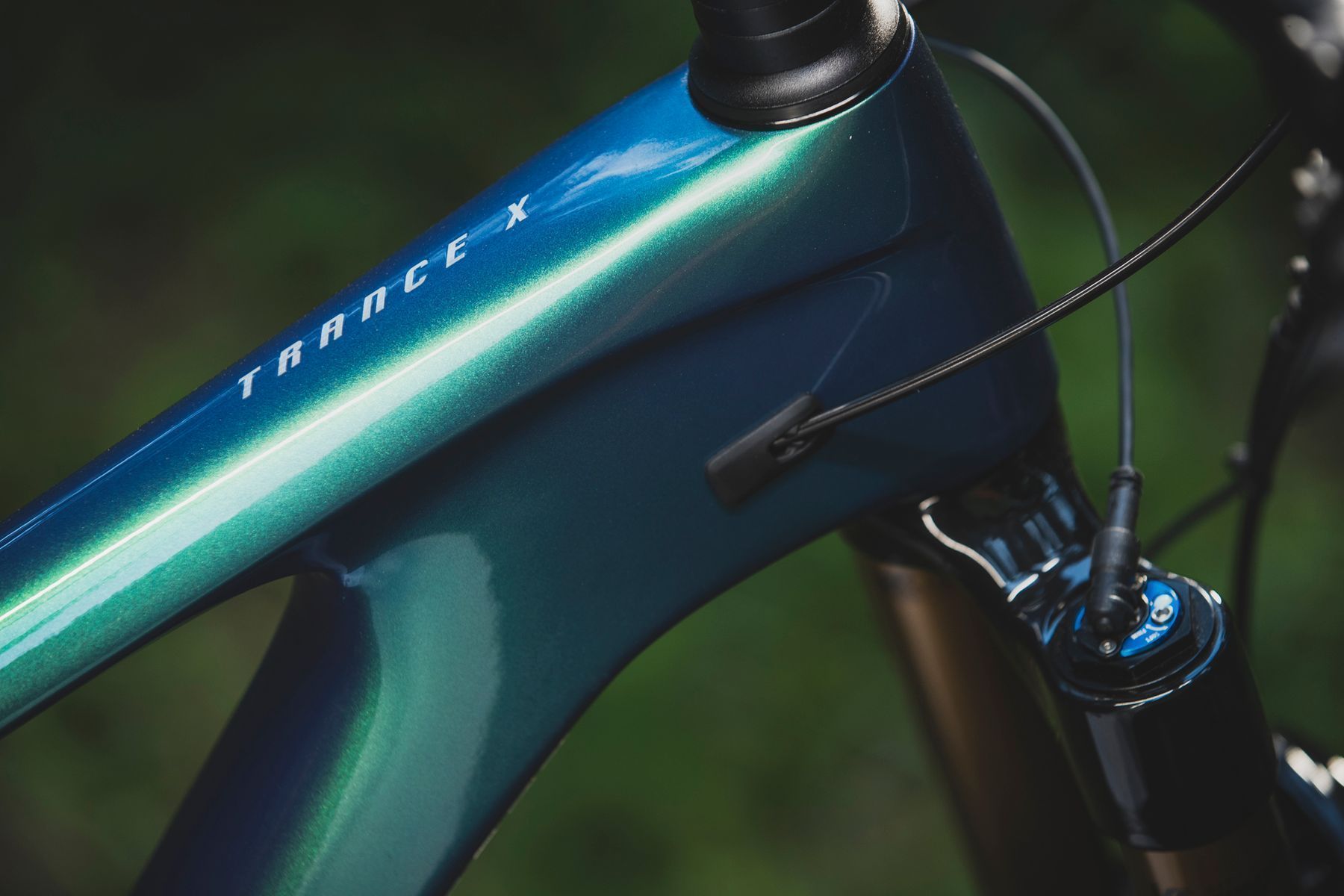
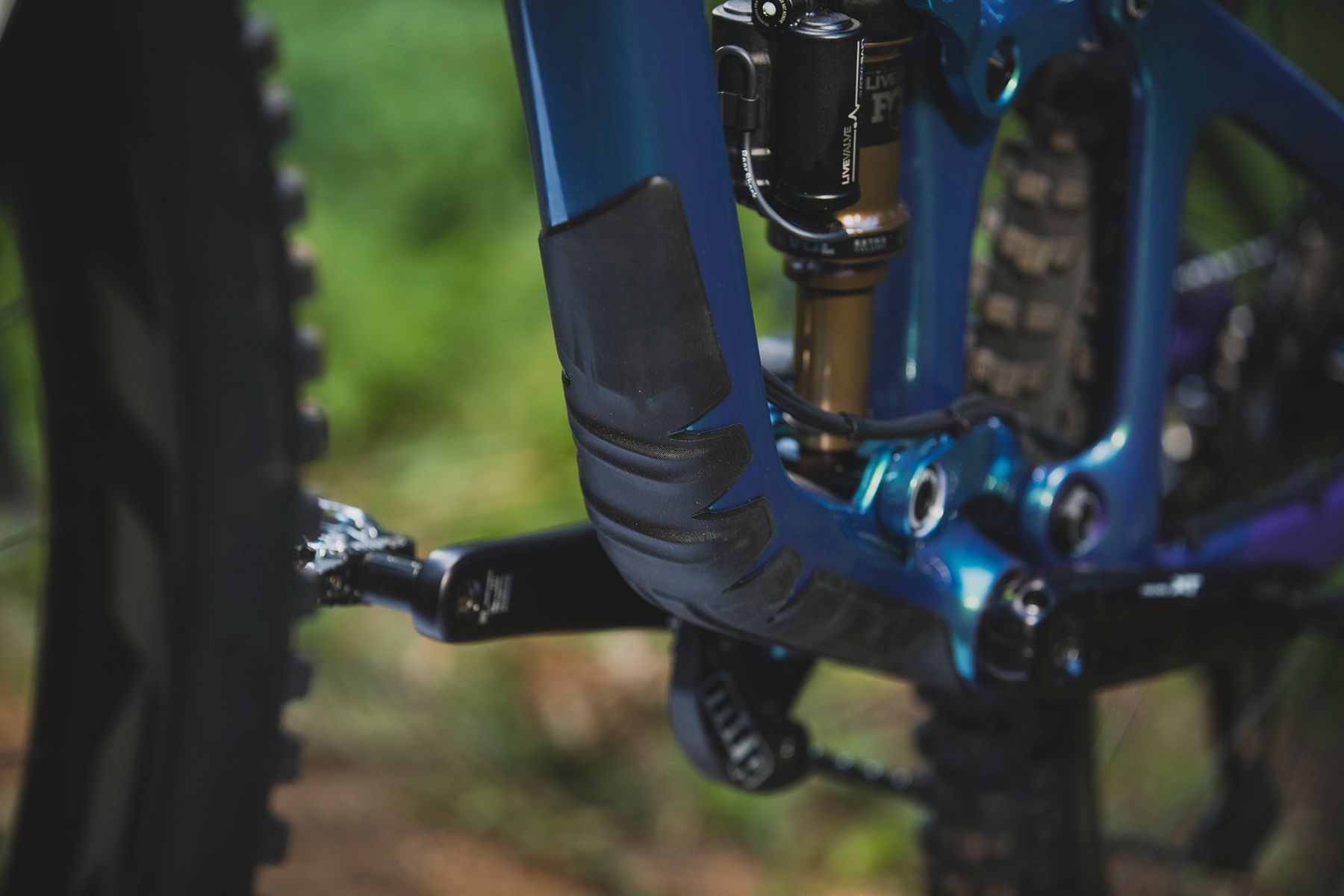
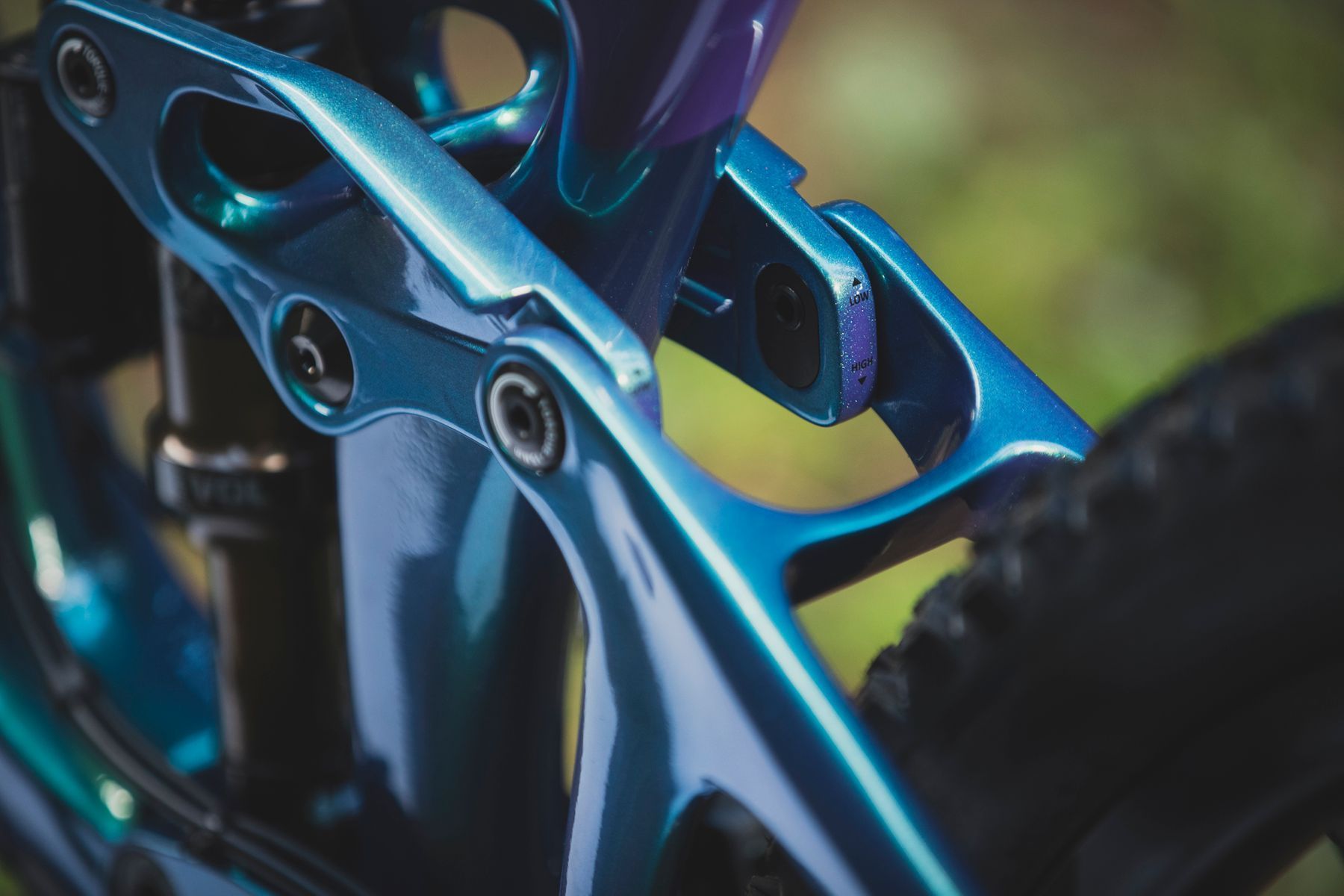





Looks awesome. The mid range (number 2) alloy Giants have always represented exceptional value and this one’s no different.
That’s a proper paint job. It’s almost like a modern take on a Klein.
Beautiful piece of kit
At what point does additional weight become material in a review? The 600g extra for the aluminium frame is ‘significant’ whereas the c.400g Live Valve system is ‘not exactly a weight penalty even if you ride with it turned off’?
In terms of the frame weight the carbon v’s aluminium frame is 30% lighter. In a relative sense that’s significant. In terms of overall weight of the entire bike, yes, it’s less significant.
As for the imprtance or otherwise of bike weights we have a really interesting podcast coming up on Monday that you will probably like 🙂
How interesting, I read the article and immediately had the same thoughts that @hamishthecat did. Is there a 500g limit on whether extra weight matters or not?